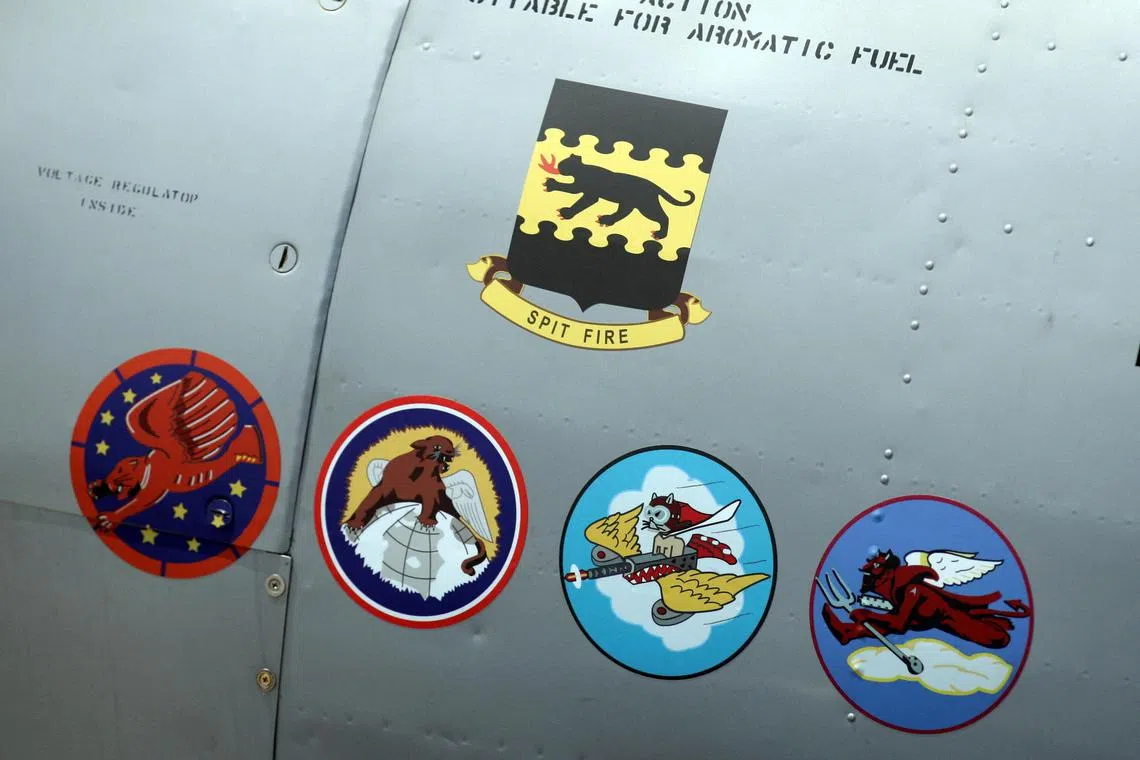US Air Force resumes use of teaching video on first black pilots after review
Sign up now: Get ST's newsletters delivered to your inbox

The insignias for the five Tuskegee Airmen squads. The Tuskegee Airmen included 450 pilots who fought overseas in segregated units during World War II.
PHOTO: REUTERS
WASHINGTON - The US Air Force said on Jan 26 that it will resume instruction of trainees using a video about the first black airmen in the US military, known as the Tuskegee Airmen, which has passed review to ensure compliance with President Donald Trump’s ban on diversity, equity and inclusion (DEI) initiatives.
Mr Trump, who took office on Jan 20, has prohibited DEI throughout the US government and the US military.
New Defence Secretary Pete Hegseth, who was sworn in on Jan 24, has made eliminating DEI from the military a top priority.
Reuters reported on Jan 25 that the video about the Tuskegee Airmen as well as another about civilian women pilots trained by the US military during World War II, known as “Women Air Force Service Pilots,” or Wasps, were not being taught in basic training at Joint Base San Antonio-Lackland pending a review.
The move was first reported by the San Antonio Express-News, and it created an uproar, including in Alabama, home to the training base in Tuskegee where the airmen got their name.
Alabama Senator Katie Boyd Britt, in a post on social media platform X, described the decision to pause teaching the videos as “malicious compliance” with the DEI review.
Mr Hegseth responded on X: “We’re all over it, Senator. This will not stand.”
The Air Force on Jan 26 said both videos will be taught.
“No airmen or guardians will miss this block of instruction due to the revision, however one group of trainees had the training delayed,” said Lieutenant-General Brian Robinson, who leads the Air Education and Training Command, in a statement.
The Tuskegee Airmen included 450 pilots who fought overseas in segregated units during World War II. Their success in combat helped pave the way for President Harry Truman’s decision to desegregate the armed forces in 1948.
DEI programmes seek to promote opportunities for women, ethnic minorities and other traditionally underrepresented groups. Civil rights advocates argue such programmes, generally backed by Democrats, are needed to address longstanding inequities and structural racism.
They have come under attack from conservatives, who say race- and gender-focused initiatives are inherently discriminatory and fail to prioritise merit. REUTERS


